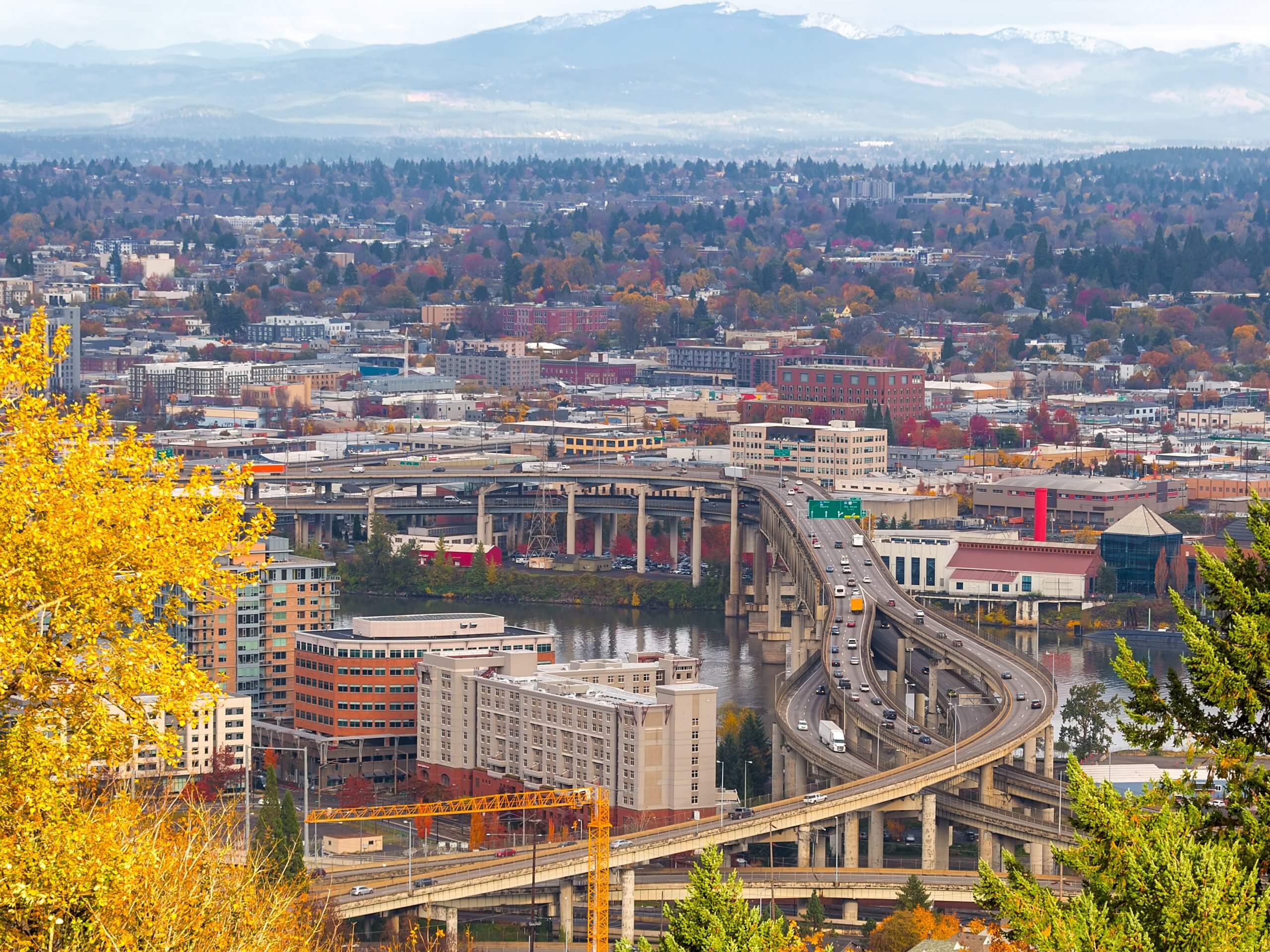Capping climate emissions in Oregon: status update

Oregon moves forward with its plan to cap and reduce greenhouse gas emissions to support climate goals
The Oregon Department of Environmental Quality (DEQ) today submitted a final report on its plan to transition Oregon to a cleaner economy.
As mandated by Governor Brown’s March 2020 Oregon Climate Action Plan (EO 20-04), DEQ must cap climate pollution from the largest sources of emissions in our state: major industrial emitters, transportation fuels, and other fuels, including natural gas. Emissions from these sectors will decline over time in order to meet the state’s new goal of cutting greenhouse gas emissions by at least 45% below 1990 levels by 2035 and at least 80% by 2050.
A well-designed cap and reduce program has the potential to slash harmful climate emissions across multiple sectors. Establishing a strong cap and reduce program in Oregon could also have a multiplier effect, by setting an example for other states to follow in adopting their own climate initiatives.

Further, by requiring major fossil fuel emitters to decarbonize, a cap and reduce program will incentivize the adoption of new technologies and processes to cut emissions across Oregon’s industrial sector. Industrial innovation and technological development will help Oregon maintain economic competitiveness and growth, while advancing the state’s emission reduction goals.
As outlined in its preliminary report, DEQ has the authority to develop cap and reduce programs that will substantially limit and reduce greenhouse gas emissions from large emissions sources. If effectively designed to prioritize maximum emission reductions–as mandated under the executive order–the program will play a critical role in Oregon’s overall climate mitigation strategy.
While the formal rulemaking process won’t begin until later this year, today’s report provides a preview of the policy options we can expect DEQ to consider as it develops its cap and reduce program. Similar to DEQ’s May 15 preliminary report, today’s report identifies general policy considerations such as the scope of greenhouse gas emissions and regulated entities covered under the program, the distribution of compliance instruments, and cost containment. However, the policy considerations outlined in the report are just a starting point. The real work of developing and refining program options will happen through extensive stakeholder and public engagement.
DEQ has outlined a robust process to ensure that the public has a chance to weigh in and inform the cap and reduce program development. Critically, DEQ’s final report provides helpful details regarding its plans for engaging communities of color and other groups that have traditionally been underrepresented in policymaking. DEQ has already begun outreach to key environmental justice organizations to seek input on the development of a meaningful stakeholder engagement process. Further, DEQ has reiterated its commitment to ensuring that environmental justice principles are fully incorporated into the cap and reduce program development and that environmental justice and impacted communities leaders are part of the decision-making process. DEQ will commit funding to support the participation and engagement of underrepresented communities. Further, the agency is considering using an application process for the Rulemaking Advisory Committee (RAC) membership, with the hope that this approach may help ensure fair and equitable representation on the committee.
DEQ’s report also provides additional details on its timeline for the rulemaking process and opportunities for the public and stakeholders to weigh in. DEQ will hold multiple public meetings, including topic-specific workshops, over the coming months to help refine policy considerations. The Environmental Quality Commission (EQC) will then appoint RAC members this fall, and host meetings and any additional public or invited stakeholder meetings early next year. A formal public comment period on the rulemaking will begin mid-2021, and the EQC will begin its consideration of the program rules late next year–in time to meet the OCAP deadline of having a program in place by January 1, 2022.
OEC and our partners will continue to engage every step of the way as DEQ moves forward with its rulemaking process. We are committed to securing a cap and reduce program that maximizes protective emission reductions that help Oregon’s economy transition to clean energy and supports public health.










